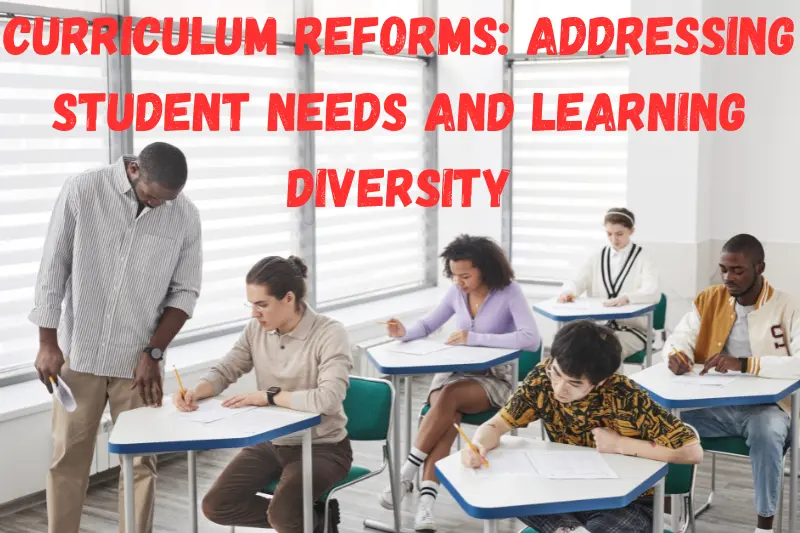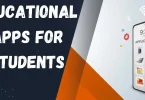Education is constantly evolving, with new policies, reforms, and technological advancements shaping the way students learn and educators teach. The latest education news covers a wide range of developments, including curriculum changes, government policies, financial aid expansions, artificial intelligence in education, and cultural initiatives. These updates highlight the efforts to improve the quality and accessibility of education worldwide.
Curriculum Reforms: Addressing Student Needs and Learning Diversity

One of the biggest discussions in the latest education news revolves around curriculum reforms, particularly in the United Kingdom. A recent study has revealed that the current GCSE (General Certificate of Secondary Education) curriculum is too academic, limiting students’ ability to explore vocational and artistic subjects.
Problems with the Current Curriculum
- The existing system prioritizes traditional subjects like mathematics, history, and modern languages.
- Vocational courses, creative arts, and technical subjects are often sidelined.
- Students from disadvantaged backgrounds struggle more due to the rigid academic focus.
The proposed reforms aim to strike a balance between academic and vocational education, allowing students to gain practical skills alongside theoretical knowledge. The government is expected to release its final recommendations in autumn, which could lead to significant changes in the UK’s education system.
Policy Changes: Federal Regulations Affecting Schools and Universities
The latest education news from the United States highlights a significant policy shift by the Department of Education. The government has revised federal civil rights laws to include protections against anti-white discrimination under Title VI of the Civil Rights Act of 1964.
Implications of the New Policy
- Schools must avoid teaching concepts linked to “systemic and structural racism” or “diversity, equity, and inclusion” (DEI) if they want to receive federal funding.
- Teachers may face restrictions on how they discuss topics related to race, gender identity, and social justice.
- Critics argue that the policy will negatively impact discussions about historical injustices and modern inequalities.
This move aligns with a broader political push to limit discussions on race and DEI initiatives in education. Many educators and civil rights activists warn that these restrictions could lead to a less inclusive and less informative curriculum.
You may also like to read this:
18 Career Guidance And Tips For Millennial Success
Best 18 Educational Apps For Students You Need To Try
12 Best Study Tips For College Students To Boost Success
14 Best Online Learning Platforms For Career And Skills
Tuition-Free Education: Harvard’s Groundbreaking Initiative
One of the most positive updates in the latest education news is Harvard University’s announcement of a new financial aid policy. Under this plan, families earning $200,000 or less per year will no longer have to pay tuition.
Key Details of Harvard’s Free Tuition Plan
- Families earning less than $100,000 per year will have all expenses covered, including tuition, housing, meals, and travel.
- The initiative is expected to benefit about 86% of U.S. families.
- Harvard joins institutions like MIT and the University of Texas System in expanding financial aid to make higher education more accessible.
This initiative aims to remove financial barriers that prevent talented students from pursuing higher education. Many experts believe that this could inspire other universities to adopt similar programs.
Artificial Intelligence in Education: The Future of Learning

The role of artificial intelligence (AI) in education is growing rapidly, with schools and universities incorporating AI-based tools to enhance learning. The latest education news reveals that generative AI is being used for personalized learning, administrative efficiency, and student engagement.
Advantages of AI in Education
- AI-driven tutoring systems offer personalized learning experiences.
- Automated grading and administrative tasks help educators save time.
- AI tools can analyze student performance and provide targeted feedback.
Challenges and Ethical Concerns
- Algorithmic bias may lead to unfair grading or assessment.
- Data privacy issues could arise from the collection of student information.
- Educators need training to integrate AI effectively into the classroom.
Experts suggest that responsible AI integration is essential to ensuring fairness, accessibility, and innovation in education.
Cultural Initiatives: Reviving the Irish Language in Schools
A major cultural development in the latest education news is the Irish government’s effort to promote the Irish language (Gaeilge) in schools. Although Irish is a compulsory subject in most schools, many students struggle to use it in real-life situations.
Government Initiatives to Promote Irish
- A €900,000 funding program has been launched to provide free Gaeltacht (Irish-speaking region) scholarships for students from disadvantaged schools.
- Language immersion programs are being expanded to encourage practical usage of Irish.
- Advocates are calling for broader support to make Irish a “living language” beyond the classroom.
Supporters argue that promoting bilingualism can benefit students’ cognitive development while preserving Ireland’s cultural heritage.
Conclusion
The latest education news highlights significant changes shaping the future of learning. From curriculum reforms in the UK and policy shifts in the U.S. to Harvard’s tuition-free initiative and the rise of AI in classrooms, these developments reflect a dynamic and evolving educational landscape. Cultural initiatives, such as the revival of the Irish language, further emphasize the importance of preserving linguistic and historical identities.
As these changes unfold, ongoing discussions among educators, policymakers, and students will play a crucial role in determining the direction of modern education.
FAQs
Q1. What are the major curriculum changes in the latest education news?
The latest education news highlights curriculum reforms in the UK, where experts are advocating for a broader curriculum that includes vocational and artistic subjects. This shift aims to make education more inclusive and practical for students who may not excel in traditional academic subjects.
Q2. How is federal education policy changing in the United States?
Recent policy changes in the U.S. have redefined anti-discrimination laws to include protections against anti-white bias. This impacts how schools handle discussions on race, diversity, and social justice, with restrictions on topics related to systemic racism and gender identity in classrooms.
Q3. Is Harvard really offering free tuition?
Yes, Harvard University has announced a free tuition initiative for students from families earning $200,000 or less. This move aims to make higher education more accessible and reduce financial burdens on middle-class families.
Q4. How is artificial intelligence (AI) being used in education?
AI is being increasingly integrated into classrooms to personalize learning, automate administrative tasks, and provide real-time feedback to students. However, ethical concerns like data privacy and bias remain challenges for its widespread adoption.
Q5. What is the Irish government doing to promote the Irish language in schools?
The government has introduced a €900,000 initiative to fund Gaeltacht scholarships for students from disadvantaged schools. This program helps students immerse themselves in the Irish language, encouraging its practical use beyond the classroom.




